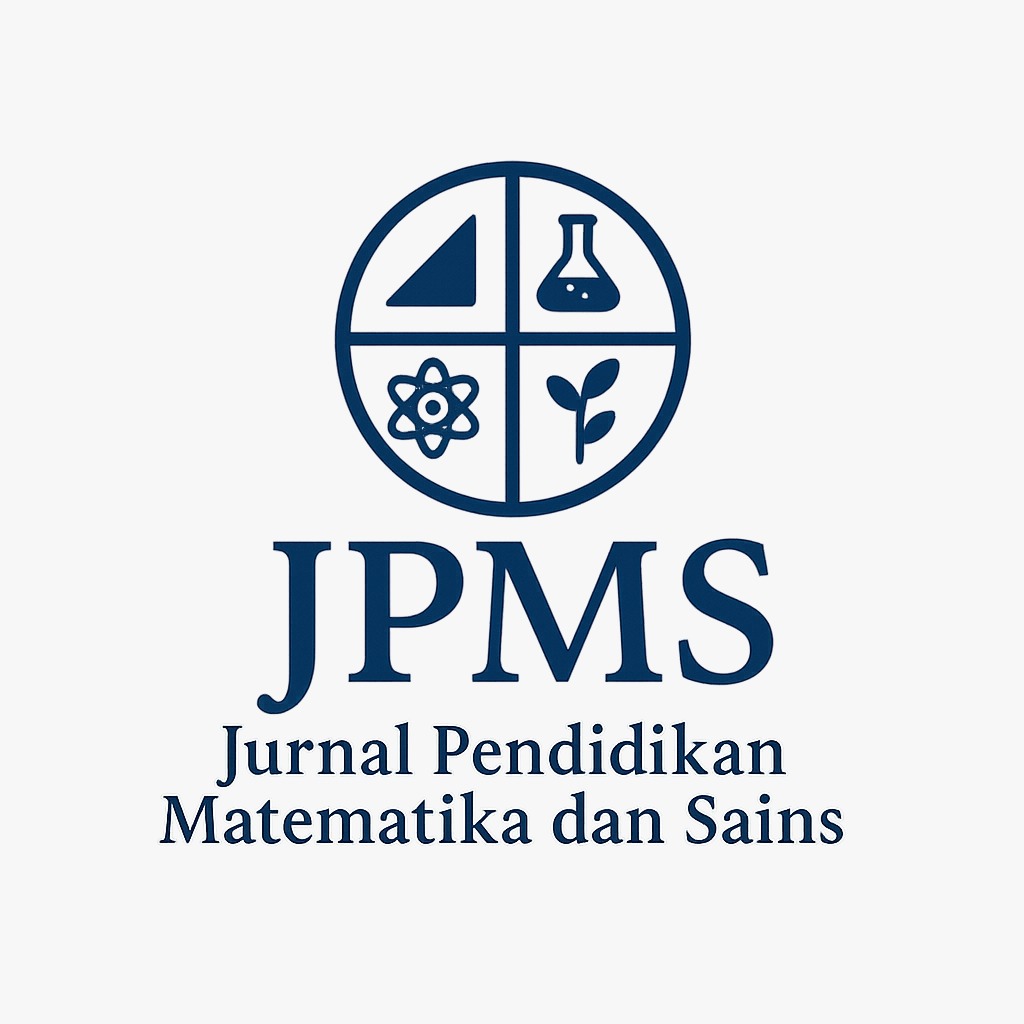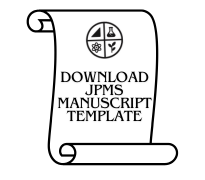Pengembangan Buku Siswa melalui Lesson Study dengan menggunakan Project Based Learning sebagai Model Pembelajaran IPA Terpadu yang Bermakna.
DOI:
https://doi.org/10.21831/jpms.v11i1.48651Keywords:
Buku Siswa, Lesson Study, Project Based Learning, IPA TerpaduAbstract
References
Anis W. S. (2020). Peningkatan Motivasi dan Hasil Belajar IPA Materi Pencemaran Lingkungan melalui Model PjBL Siswa Kelas VII SMPN 9 Salatiga. Jurnal Pendidikan MIPA, 10 (1), http://ejournal.tsb.ac.id/index.php/jpm/index.
Asep N. (2017). Pengembangan Buku Ajar Biologi Berbasis Project Based Learning untuk Meningkatkan Kreativitas Siswa SMA Negeri Penengahan Lampung Selatan. Bioedukasi, Jurnal Pendidikan Biologi, 8 (1). http://dx.doi.org/10.24127/bioedukasi.v8i1.832.
Ausubel, D.P. (2000). The Acquisition and Retention of Knowledge: A cognitive View. Dordrecht: Springer Science+Busines Media B.V.
Baron, K. (2011). Six steps for planning a successful project. Retrieved on March
, 2011, from www.edutopia.org/maine-project-learning-six-stepsplanning.
Cole, J. E, & Washburn-Moses, L. H. (2010). Going beyond "the math wars". A
special educator's guide to understanding and assisting with inquiry-based
teaching in mathematics. Teaching Exceptional Children, 42 (4), 14-21. https://doi.org/10.1177%2F004005991004200402.
Kerans, G. & Khristoforus P. N.. (2021). Development of Integrated Science Learning through Lesson Studies Using A Problem-Based Learning Model. Proceedings The 3rd International Conference on Elementary Education, 3 (1), 89-99.
Kinasih, A., Sunarno, W., & Sukarmin, S. (2018). Pengembangan Modul Fisika dengan
Pendekatan Keterampilan Proses pada Materi Listrik Dinamis untuk Meningkatkan Kemampuan Berpikir Kreatif Siswa Kelas X SMA. Inkuiri, 7 (1), 29-38. https://doi.org/10.20961/inkuiri.v7i1.19782.
Kurniasih & Sani. (2014). Panduan Membuat Bahan Ajar (Buku Teks Pelajaran) sesuai dengan Kurikulum 2013. Surabaya: Kata Pena.
Laurel D.Puchner and Ann R.Taylor. (2006). efficacy: Stories from two school-based math lesson study groups. Teaching and Teacher Education, 22, 922-934. https://doi.org/10.1016/j.tate.2006.04.011.
Margaretha N.I., & Sumadi. (2019). Pengembangan Buku Siswa dan Buku Petunjuk Guru Matematika Berorientasi Pemecahan Masalah dengan Setting 5 E. Indonesian Digital Journal of Mathematics and Education, 6 (1). http://p4tkmatematika.kemdikbud.go.id/journals/index.php/idealmathedu/.
Maria, L.F. (2010). Investigating how and what prospective teachers learn through microteaching lesson study. Teaching and Teacher Education, 26, 351-362. https://doi.org/10.1016/j.tate.2009.09.012.
Ngalimun. (2012) Strategi dan Model Pembelajaran. Banjarmasin: Aswaja Pressindo.
Permendikbud. (2018). Perubahan Atas Peraturan Menteri Pendidikan dan
Kebudayaan Nomor 58 Tahun 2014 tentang Kurikulum 2013 Sekolah
Menengah Pertama/ Madrasah Tsanawiyah. Jakarta: jdih. kemdikbud.go.id.
Purwanto, M Ngalim. 2014. Ilmu Pendidikan Teoretis dan Praktis. Bandung: PT Remaja Rosdakarya.
Rahayu, P. Mulyani, S. and Miswadi, S.S. (2012). Pengembangan Pembelajaran IPA terpadu dengan menggunakan model pembelajaran Problem Based Learning melalui Lesson StudyJurnal Pendidikan IPA Indonesia. 63-70. https://journal.unnes.ac.id/nju/index.php/jpii/article/view/2015/2129.
Schunk, D. H. (2012). Learning Theories: An Educational Perspective. Boston: Pearson Education.
Septi, Indra S., Desy H. P. (2019). Pengembangan Modul Fisika dengan Pembelajaran Berbasis Proyek pada Materi Alat-Alat Optik. Jurnal Kumparan Fisika, 2 (3), 129-136. https://ejournal.unib.ac.id/index.php/kumparan_fisika.
Trianto. (2007). Model Pembelajaran Terpadu dalam Teori dan Praktek. Jakarta: Prestasi Pustaka.
Wigga Okta. (2020). 7 Pesan Mendikbud soal belajar dari Covid-19. Radio Suara Pendidikan; https://suarapendidikan.com/7-pesan-mendikbud-soal-belajar-dari-covid-19. Diakses 19 Oktober 2020.
Yumiko Ono and Johanna Ferreira . (2010). A case study of continuing teacher professional development through lesson study in South Africa. South African Journal of Education, 30, 59-74. https://www.ajol.info/index.php/saje/article/view/52602.
Downloads
Published
How to Cite
Issue
Section
Citation Check
License
Jurnal Pendidikan Matematika dan Sains allows readers to read, download, copy, distribute, print, search, or link to its articles' full texts and allows readers to use them for any other lawful purpose. The journal allows the author(s) to hold the copyright without restrictions. Finally, the journal allows the author(s) to retain publishing rights without restrictions
- Authors are allowed to archive their submitted article in an open access repository
- Authors are allowed to archive the final published article in an open access repository with an acknowledgment of its initial publication in this journal

This work is licensed under a Creative Commons Attribution-ShareAlike 4.0 Generic License.





